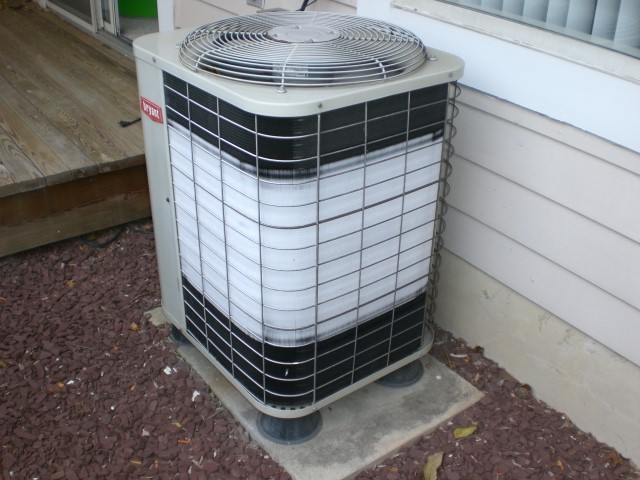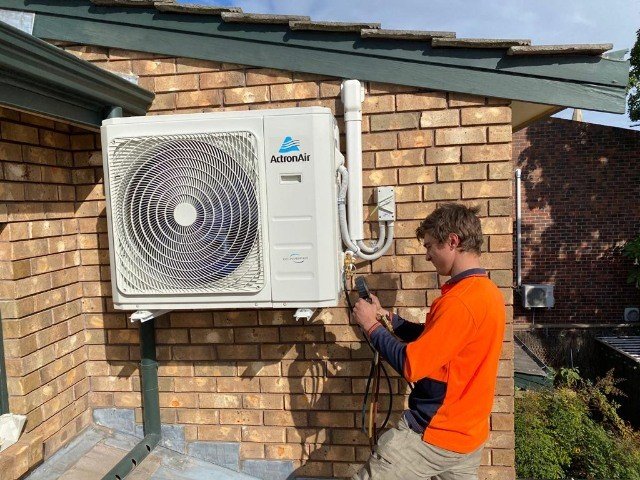
Air conditioning is a lifesaver in hot climates, but when your AC system malfunctions, it can quickly turn a comfortable home into a sweltering environment. Understanding common air conditioning problems and knowing how to prevent them can save you time, money, and frustration. Here, we’ll discuss the top five air conditioning problems and practical solutions to help you avoid them.
1. Refrigerant Leaks
Refrigerant is the substance your air conditioner relies on to absorb heat and cool the air. When your AC unit is low on refrigerant, it can’t efficiently cool your home. This could happen due to improper installation or leaks in the refrigerant lines. A refrigerant leak not only reduces cooling efficiency but can also damage your compressor, potentially leading to a complete system failure.
Signs of Refrigerant Leaks:
- AC takes longer to cool your home.
- Higher energy bills.
- Hissing sounds near the refrigerant line.
- Ice buildup on the evaporator coils.
How to Avoid Refrigerant Leaks:
- Schedule regular maintenance checks with a professional HVAC technician. They can inspect the refrigerant levels and look for signs of leaks before they become a bigger issue.
- If a leak is detected, a technician will need to fix the leak and recharge the system with the correct amount of refrigerant. Regular maintenance ensures the refrigerant remains at optimal levels and your AC functions efficiently.
2. Dirty or Clogged Air Filters
Air filters play a crucial role in keeping your air conditioner running efficiently. They trap dust, pollen, and other particles from entering your system, but over time, these filters can become clogged. When this happens, your air conditioner has to work harder to circulate air, which can lead to higher energy bills, poor indoor air quality, and increased wear and tear on your system.
Signs of Dirty or Clogged Air Filters:
- Reduced airflow from the vents.
- The AC struggles to cool the room effectively.
- A noticeable increase in dust or allergens inside the home.
- The air conditioner frequently cycles on and off.
How to Avoid Dirty Air Filters:
- Replace or clean your air filters regularly, depending on the type of filter. Disposable filters should be replaced every 1-3 months, while reusable filters can be cleaned and reused.
- If you have pets, live in an area with high pollen counts, or have a lot of dust, consider replacing the filter more frequently.
- Regular filter maintenance ensures your AC runs efficiently and improves indoor air quality.
3. Frozen Evaporator Coils
Evaporator coils are essential in cooling the air inside your home. These coils absorb heat from the air, but if they freeze, the cooling process is disrupted. A frozen coil can result from restricted airflow or low refrigerant levels, leading to warm air being circulated instead of cool air.
Signs of Frozen Evaporator Coils:
- Warm air blowing from the vents.
- Ice forming on the evaporator coils or refrigerant line.
- Water pooling around the air handler due to thawed ice.
- AC takes longer to cool the home or doesn’t cool at all.
How to Avoid Frozen Coils:
- Ensure there’s good airflow by regularly cleaning or replacing your air filters.
- Have your refrigerant levels checked during regular AC maintenance.
- Keep the area around your indoor AC unit free of obstructions, such as furniture or curtains, that may block airflow.
- If you notice ice on the coils, turn off the system and contact a professional technician to address the issue.
4. Electrical Control Failure
Frequent cycling (turning on and off) of your air conditioning unit, especially in older systems, can cause wear and tear on electrical components, including the compressor and fan controls. Over time, electrical connections may also become corroded, which can lead to system malfunctions.
Signs of Electrical Control Failure:
- AC fails to turn on or off properly.
- The compressor or fan doesn’t respond when the thermostat is adjusted.
- The AC short-cycles (turns on and off more frequently than usual).
- Unusual humming or clicking sounds from the unit.
How to Avoid Electrical Control Failure:
- Avoid frequently turning your air conditioner on and off. Letting it run for longer periods at a stable setting helps reduce strain on electrical components.
- Schedule routine maintenance to check electrical connections, relays, and wiring.
- An HVAC technician can inspect and replace any worn or corroded electrical parts during regular service appointments.
5. Thermostat Problems
Your thermostat is responsible for communicating with your AC system, telling it when to turn on and off based on the temperature settings. If the thermostat isn’t working correctly, your air conditioner won’t operate efficiently, leading to discomfort and increased energy costs. Problems can arise from a malfunctioning thermostat, incorrect placement, or outdated models.
Signs of Thermostat Issues:
- AC won’t turn on or off when you adjust the thermostat.
- Inconsistent temperatures throughout the home.
- The thermostat display is blank or unresponsive.
- The AC short-cycles, turning on and off too frequently.
How to Avoid Thermostat Problems:
- Ensure your thermostat is installed in the right location, away from direct sunlight, windows, and heat sources that could cause false temperature readings.
- If your thermostat is old or outdated, consider upgrading to a programmable or smart thermostat for more precise control.
- Regularly check the thermostat’s batteries (if applicable) and replace them as needed.
- Have an HVAC technician inspect the thermostat during regular maintenance appointments to ensure it’s functioning correctly.

Additional Tips for Preventing AC Problems
- Regular Professional Maintenance: Scheduling an annual or bi-annual maintenance appointment with an HVAC professional can catch small problems before they escalate into costly repairs. A technician will clean components, check refrigerant levels, inspect electrical connections, and ensure your AC unit is running efficiently.
- Clean the Outdoor Unit: The condenser unit outside can become clogged with dirt, leaves, and debris, which restricts airflow and reduces the system’s ability to cool efficiently. Regularly check and clean the outdoor unit to keep it free from obstructions.
- Inspect Ductwork: Leaky or poorly insulated ductwork can cause cool air to escape, forcing your AC to work harder. Periodically check for visible leaks or damage in your ductwork and have them sealed to improve system efficiency.
- Use Your AC Wisely: Avoid setting the thermostat to extremely low temperatures in an attempt to cool your home faster. It won’t cool the room any quicker, but it will increase energy consumption and strain your AC system. Instead, set the temperature to a comfortable level and use ceiling fans to help circulate cool air.
- Install Window Shades or Blinds: Direct sunlight can heat your home, making your AC work harder to maintain a comfortable temperature. Using blinds or shades to block out the sun during the hottest parts of the day can reduce the load on your air conditioning system.
Conclusion
Your air conditioning system is a critical component of your home’s comfort, especially during the hot summer months. By staying proactive with regular maintenance, addressing issues early, and following best practices, you can prevent common air conditioning problems, extend the life of your system, and save money on energy bills. Don’t wait until your AC breaks down—start implementing these tips today to keep your home cool and comfortable all year long. Visit https://www.abacusplumbing.com/round-rock-air-conditioning/ where you will find lots of great information and practical advice about the top 5 air conditioning problems and how to avoid them.



